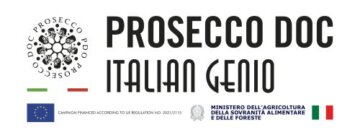16/10/2025
House of Commons Roundtable: Food, Farming & Sustainability in the National Curriculum
On 13th October 2025 Louise Monaghan attended her first Roundtable at the House of Commons: Food, Farming & Sustainability and the National Curriculum. It was brought together by the brilliant change-maker Olivia Shave, whose passion and determination to make a difference set the tone for an energising and forward-thinking discussion. Here Louise gives a summary of what happened.
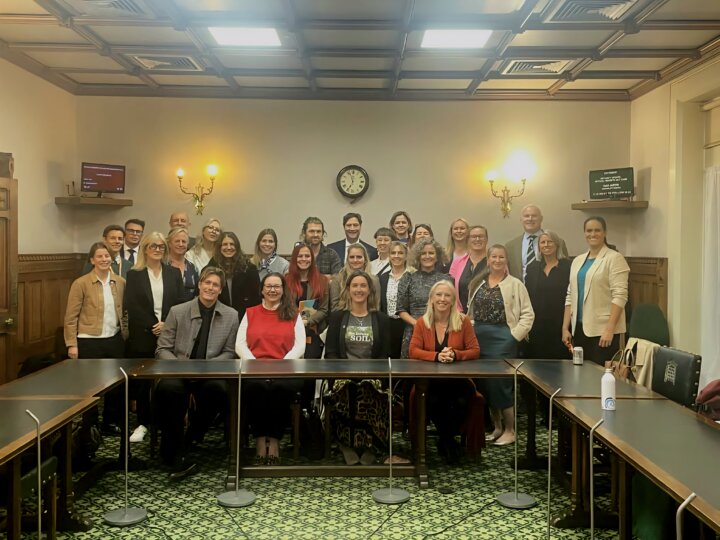
The room was full of people who care deeply about the future. There were campaign leaders, educational experts, teachers, agricultural specialists, MPs (including Roz Savage) and parliamentary champions, all united by a shared purpose:
To make food, farming and sustainability a central, not peripheral, part of the national curriculum.
It wasn’t just about healthy eating. It was about helping children understand the full story of food: where it comes from, how it’s grown, and how to cook it. To know that apples don’t just come from Tesco, that a tomato isn’t a bottle of ketchup, and that a woolly jumper starts with shearing a sheep. It’s about teaching the connection between soil, farming, food, health and the planet, and ensuring this knowledge is seen as essential life learning, not an optional extra.
There was a real sense that this is the start of something: a collective movement to embed food, farming and sustainability into the heart of the national curriculum not as an afterthought or a ‘postcode lottery’ but as essential learning for life.
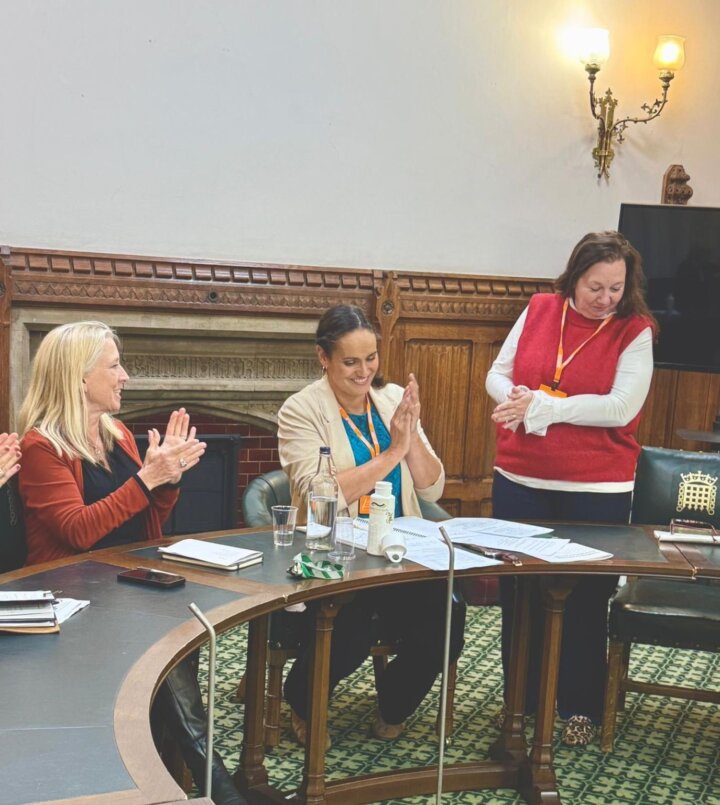
Key Themes and Discussions
- Food as a Foundation for Learning
Food education shouldn’t sit in a silo. It connects to science, geography, history, health, maths, and even mental wellbeing.
Speakers shared examples of how growing, cooking, and sharing food can be woven into everyday lessons:
- Measuring and weighing ingredients in maths.
- Using food to explore periods in history or climate patterns in geography.
- Teaching children to grow and prepare the food they eat.
- Letting lunchtime become an educational moment.
The message was clear: education should connect children to life, and food is one of the most direct, tangible ways to do that.
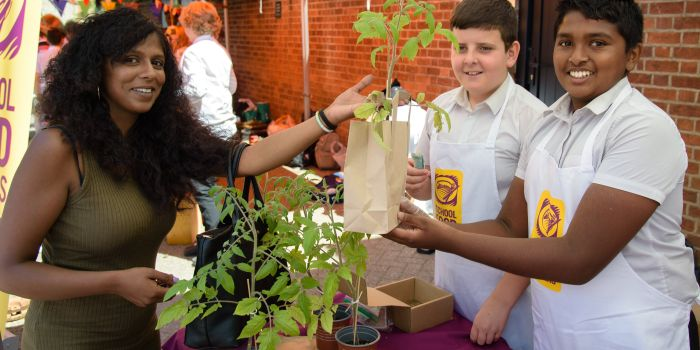
- A Fragmented System in Need of Cohesion
Currently, food education in schools is patchy and inconsistent. Some schools offer fantastic hands-on experiences, while others offer almost none. It often depends on postcode, funding, or teacher confidence.
One teacher shared striking figures: in the current National Curriculum, agriculture is mentioned only once, soil just twice in Key Stage 3, and farming isn’t mentioned at all. That gap highlights the urgent need to review what children are actually studying and to embed this learning across existing subjects, rather than treating it as an optional extra.
It was noted that food and farming tend to sit within Geography, which fewer pupils take at GCSE. There’s an opportunity to integrate these themes into more popular subjects like Biology, which already touches on ecosystems and nutrition, helping make food education more connected and relevant.
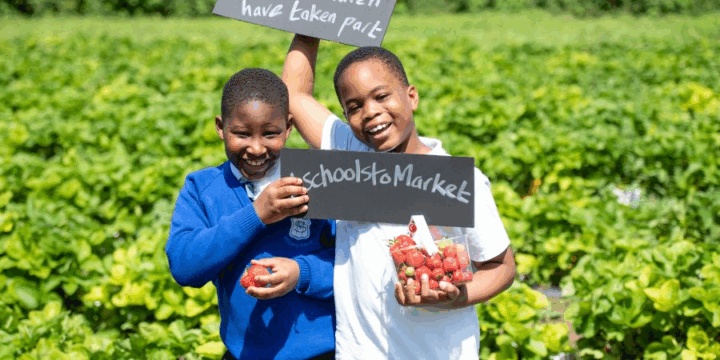
The consensus was that food and farming need to be embedded holistically across the curriculum, starting in primary school and supported by proper training for teachers (“train the trainers”) and guided by joined-up government departments working together across education, health, environment and agriculture.
- Connection, Wellbeing and Resilience
Several contributors spoke about the mental health benefits of outdoor learning and reconnecting with nature, especially for children who struggle in traditional classroom settings.
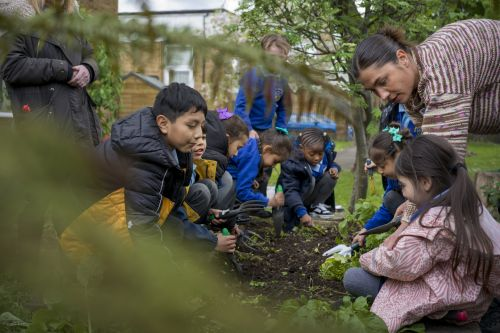
Projects that take children outside (“schools without walls”) are seeing higher engagement, particularly among SEND learners. One example discussed was the growth of home education projects since COVID, showing how being in nature benefits learning and wellbeing.
The proverb by Lao Tzu was quoted which was very apt for the evening:
“If you give a man a fish, he will eat for a day. If you teach him how to fish, he will eat for a lifetime.”
We need to teach children not just what to eat, but why it matters. Helping them make sustainable choices and build resilience in an uncertain world.
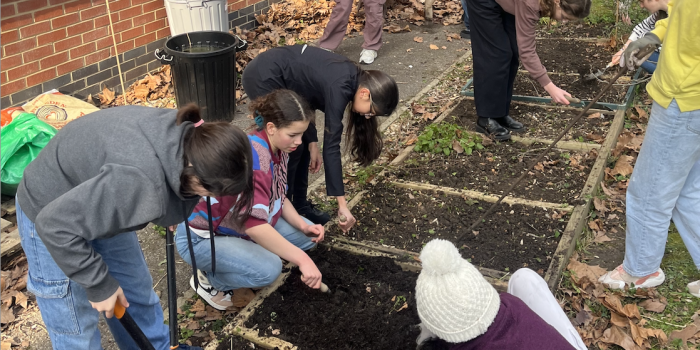
- Building a Whole-School Food Culture
This is about more than what’s served in the dining hall. It’s about creating a culture where food connects learning, community and wellbeing:
- Every child growing, preparing and tasting food.
- Every school having a growing space.
- Every subject linking back to our ecosystem and the land that sustains us.
- Parents feeling supported, not shamed.
- Farm visits seen as part of learning, not a one-off treat.
When schools take a whole-school approach to food, children learn it, see it and live it, therefore gaining not only skills but confidence, curiosity and care for the world around them.
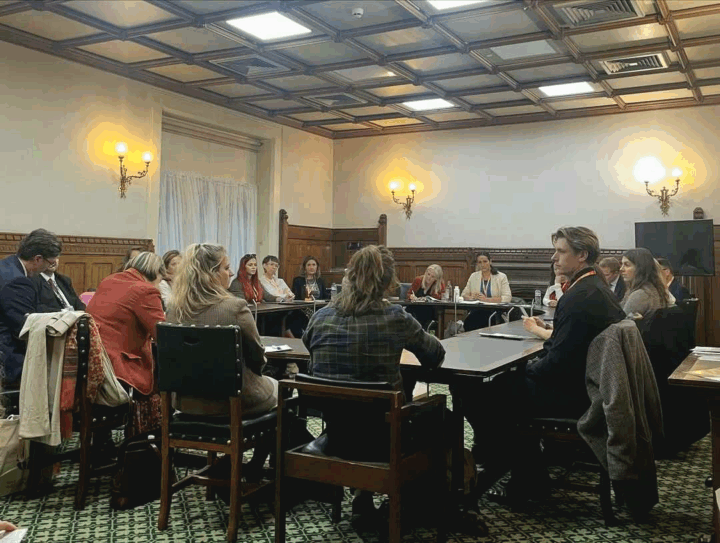
Aims of the Roundtable
The aims of the Roundtable were to identify practical steps to embed food, farming, and sustainability into mainstream education ensuring that every child learns where their food comes from, how it’s produced, and why it matters.
Proposed steps included:
- Embedding Food, Farming & Sustainability across the national curriculum (not just Design & Technology).
- Establishing a Food, Farming & Nature Taskforce – youth and teacher-led, multi-sector, with government support.
- Implementing Environmental Impact Assessments (EIAs) for schools to monitor ecological footprints.
- Developing pilot programmes through existing successful partnerships.
- Ensuring inclusivity through EYFS and SEND learning pathways.
- Strengthening policy and accountability through the proposed Food, Farming & Nature Bill.
- Encouraging cross-sector collaboration between schools, farmers, mental health professionals, and local authorities.
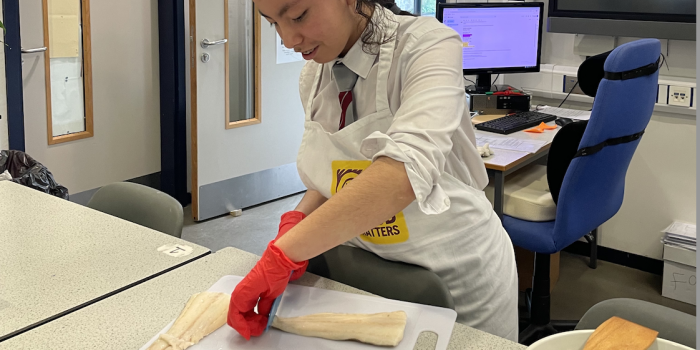
Summary: Reconnection, Regeneration, and Resilience
The discussion closed with three guiding themes – Reconnection, Regeneration and Resilience as the foundation for what needs to happen next.
- Reconnection:
We need to reconnect not only with food and where it comes from, but with nature, community, and ourselves. Children should learn that food doesn’t just arrive on supermarket shelves – it grows from soil, from farmers’ hands, from ecosystems that sustain life. Something that has not been seen cannot be cared for. - Regeneration:
This is about restoring the human spirit as much as the planet – rebuilding our relationship with food, land and learning in a way that nurtures wellbeing and belonging. Schools that weave food into every subject from climate change to enterprise, create purposeful, connected learning where children see, do, and live what they learn. It’s about adapting what we already do, not tearing up the system, but expanding it with purpose and meaning. - Resilience:
In a world of environmental, social and geopolitical uncertainty, we need to equip the next generation with the knowledge and skills to adapt and thrive. Understanding the power of nature and food systems builds that resilience, for individuals, communities, and society as a whole.
Food education should sit at the heart of our education system, not confined to the dining hall or the occasional farm visit, but as a whole-school approach that connects subjects, inspires curiosity, and builds community. It’s about helping parents, not shaming them, and using food to bring people together – to share, learn and connect.
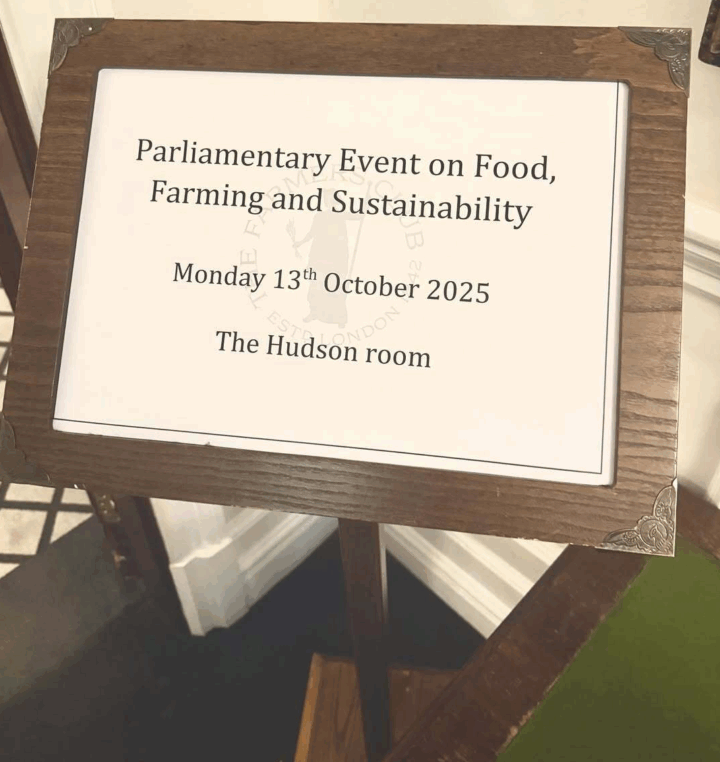
Reflections
What struck me most was the shared belief that this isn’t just about food education it’s about future-proofing society. If we teach children to understand food, farming, and nature, we teach them to care for themselves, for each other and for the planet.
There was great energy in the room. It was passionate, practical and hopeful. It truly felt like the beginning of real change.
Photos of school children courtesy of School Food Matters
Keep up to date by following Soil Ed UK on Instagram









